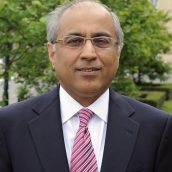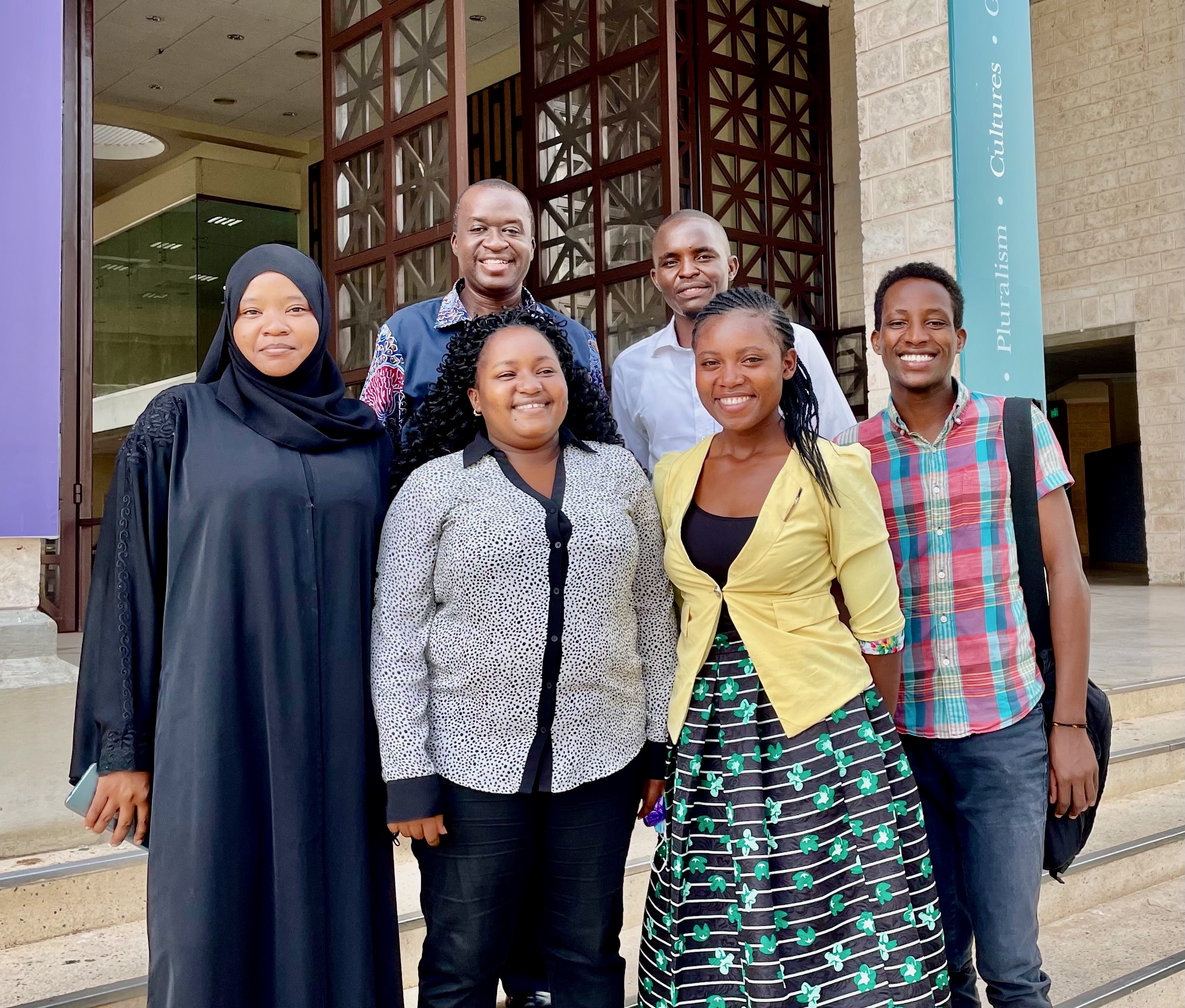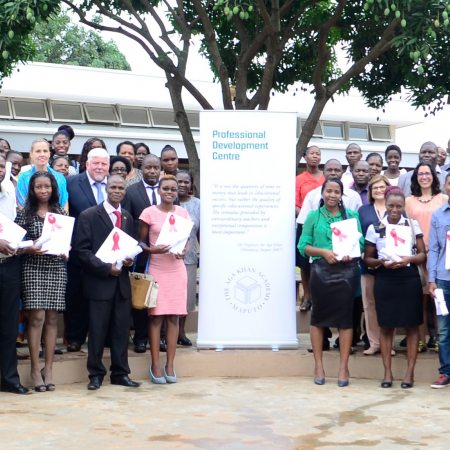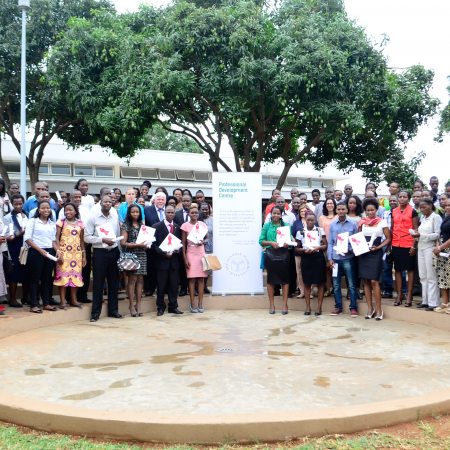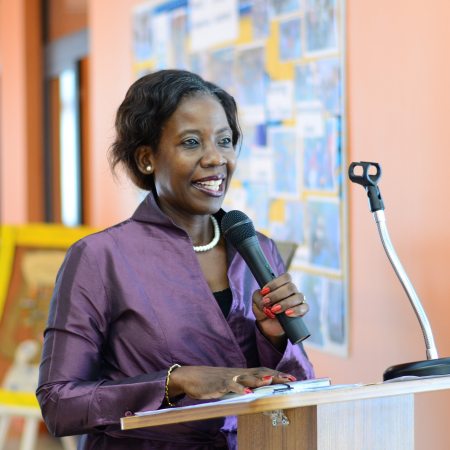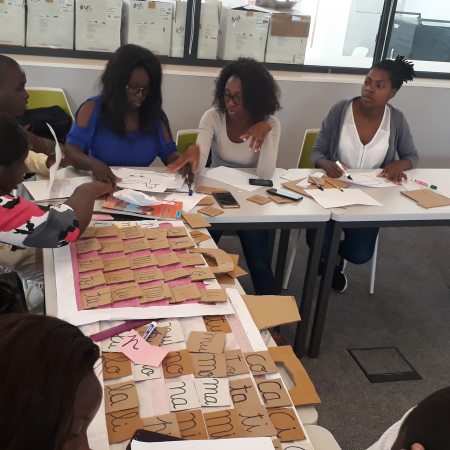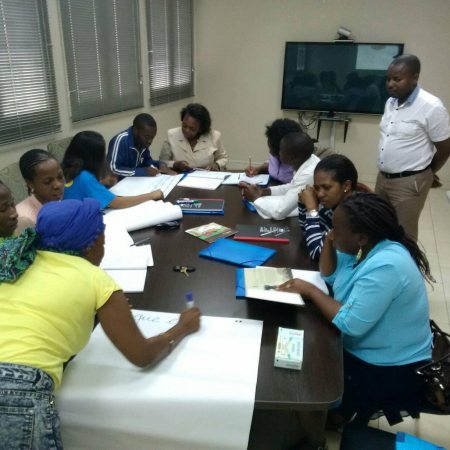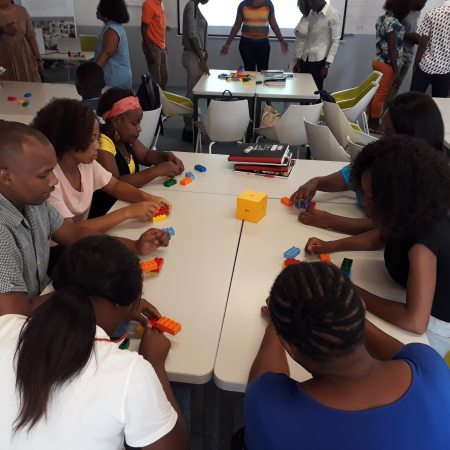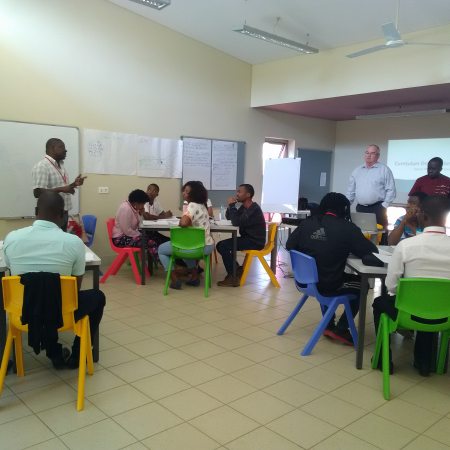Grade 9 students of the Academy exhibited an insightful display of artwork connecting with cultural expressions.
Aga Khan Academies newsletter
Click here to read the latest Academies network newsletter with stories of the Teacher Preparation Programme and highlights from all three Academies.
Director's Welcome
Director of AcademiesThe Aga Khan Academies are a network of schools being established by His Highness the Aga Khan in countries across South and Central Asia, Africa and the Middle East.
As the Director of Academies, I have been entrusted with His Highness’s extraordinary vision for the Academies as a global learning community, where young people develop the capacity to become future leaders of civil society.
The underlying idea of the Aga Khan Academies network is to concentrate substantial resources on those exceptional individuals – students and teachers – who have the potential to transform society. When provided with a world-class education, exceptional students from any background can achieve their significant potential and in so doing improve their lives, the lives of their families, their communities, their country and the world.
At this time, we envisage a network of approximately 18 campuses across 14 countries that, when fully developed, will be teaching 14,000 students.
Each Aga Khan Academy will reach out to students of all backgrounds, regardless of culture, race, religion or financial circumstance.
The Academies follow the International Baccalaureate (IB) curriculum, ensuring a global standard of educational excellence and external validation through the annual IB Diploma exams.
The Academies also work to enhance the quality of teaching, the base on which good education rests. Each Aga Khan Academy will provide professional development programmes for teachers and school leaders from within the Academy as well as from government and other schools.
The students in our existing Academies are already achieving exceptional results across domains spanning academics, athletics and the arts. And our alumni, many of whom attend leading universities around the world, are demonstrating a deep sense of social responsibility and a commitment to return to serve their home countries.
Ultimately, we hope that the qualities of good leadership – sound moral judgment, self-discipline, a pluralistic outlook and civic responsibility – are the qualities that will distinguish Aga Khan Academy graduates.
"Our goal, then, is not to provide special education for a privileged elite – but to provide an exceptional education for the truly exceptional." I invite you to explore our website further to learn more about the Aga Khan Academies and the unique and innovative programme they offer.
With warm wishes,
Salim A.L. Bhatia
Director of Academies
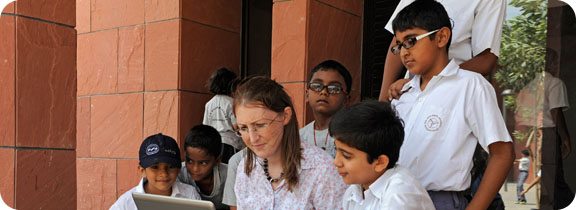
Teacher Resources
The Aga Khan Academies work to develop curriculum units that are relevant to cultural contexts of schools in the developing world. These resources develop students’ understanding of the Aga Khan Curricular Strands – Ethics, Pluralism, Cultures (with an emphasis on Muslim civilisations), Governance and Civil Society, and Economics for Development.
Resources are freely available for schools to download and use for education purposes, with appropriate attribution. We would welcome feedback about your experiences using these resources in your school. If you have comments, ideas for improvements, or would simply like to know more about our work, please send an email to: curriculum@agakhanacademies.org.
The Aga Khan Trust for Culture
The following units have been developed as part of a collaborative project between the Aga Khan Academies and the Aga Khan Trust for Culture. They follow the guidelines for IB Middle Years Programme (MYP) units, but can be used in any curriculum.
Parks and Gardens as Sanctuaries: an interdisciplinary unit for MYP1 students bringing together learning from language and literature or language acquisition (Phases 3-5) and the arts.
- Teachers' Guide
- Companion Slides
- Case Study (English language acquisition)
- Case Study (English language and literature)
Evolving Identities and Navigating Cultures: a unit to promote student well-being, which could be used as part of a pastoral or PSHE programme in MYP2.
Musical Expression is a Universal Feature of Human Experience: a music unit for students in MYP4 or MYP5.
Treasures of the Silk Routes
Treasures of the Silk Routes: Interdisciplinary Unit Planner
Treasures of the Silk Routes: Teachers' Guide
Treasures of the Silk Routes: Objects from the Aga Khan Museum Collection (slideshow)
Aga Khan Curricular Strands
The Aga Khan Curricular Strands (AK Strands) are a unique part of the programme offered by the Aga Khan Academies. The AK Strands are areas of learning aimed specifically at developing knowledge, skills and attitudes required by future leaders.
Our goal at the Academies is to develop young people who have strong local roots and are also globally minded. They should be able to become leaders in whichever fields they choose.
To help achieve this goal, we have identified five areas of learning, the Aga Khan Curricular Strands, that we believe are important for our students. These are:
- Ethics
- Pluralism
- Cultures (with an emphasis on Muslim civilisations)
- Governance and Civil Society
- Economics for Development.
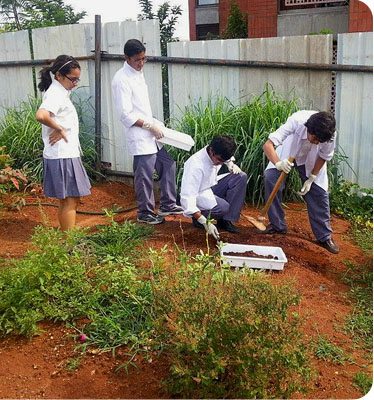 Implementing the AK Strands
Implementing the AK Strands
The Aga Khan Curricular Strands are not taught as independent subjects. Instead, we weave them into the existing subject areas of the academic curriculum. They help inform the selection of content and themes for study. The AK Strands also provide direction for school life outside the classroom in areas such as policy making, recruitment, student life and residential life.
Two of the AK Strands, Ethics and Pluralism, help students develop values and dispositions required by ethical leaders. Our students learn about these areas in theory and are also encouraged to practice what they learn in their everyday lives.
Through the other three AK Strands, our students learn about ideas that are important to the functioning of societies. In particular, they learn about how these ideas impact people’s lives in countries of the developing world. The knowledge they gain helps them understand key issues from both local and international perspectives.
The AK Strands in practice
The Aga Khan Curricular Strands were developed at the first Aga Khan Academy in Mombasa and are designed to be used in different cultural contexts. Teachers at the Aga Khan Academy Hyderabad helped tailor the AK Strands for the local environment in India and the teachers at the Aga Khan Academy Dhaka will do the same.
For example, grade 3 students worked on a history and geography unit about Hyderabad that related to Economics for Development. The students examined how the physical features of the area influenced the city and its economic activity. They learned about employment today and also looked at traditional forms of work, including a visit to a nearby weaving cooperative. This unit helped the students understand both general ideas about economics and their impact on daily life in Hyderabad.
Through the Aga Khan Curricular Strands, our students develop attitudes and values that will help them throughout their lives. They also gain knowledge and understanding that will allow them to contribute positively to their societies in the future.
For more information on the educational programme offered at the Aga Khan Academy Dhaka, please visit the Academic Programme page.
Welcome to the Aga Khan Academy Mombasa
The Aga Khan Academy Mombasa has been awarded IB status by the International Baccalaureate
Multimedia
A better world through education: The Aga Khan Academies
View all Academies videos
Recent News
Josephine Odiambo is the Aga Khan Academy Maputo's new English and literature teacher.
Our Grade 5 students ventured an exciting tour to the DERA Resort in Manikganj, Dhaka, to learn about innovation and critical thinking.
The Aga Khan Academy Maputo: From Vision to Reality (Portuguese subtitles)
The Aga Khan Academy Maputo is committed to developing future leaders by delivering Excellence in Education. We offer merit-based admission to our International Baccalaureate (IB) programme at our purpose-built world-class campus in Maputo, Mozambique. Watch our newly released video to learn more about our unique offering.
AKA Maputo PDC celebrates 10 years
The Aga Khan Academy Maputo's Professional Development Centre (PDC) celebrated its 10-year anniversary this year. To commemorate this, we take a look back over the years at the work of the PDC.
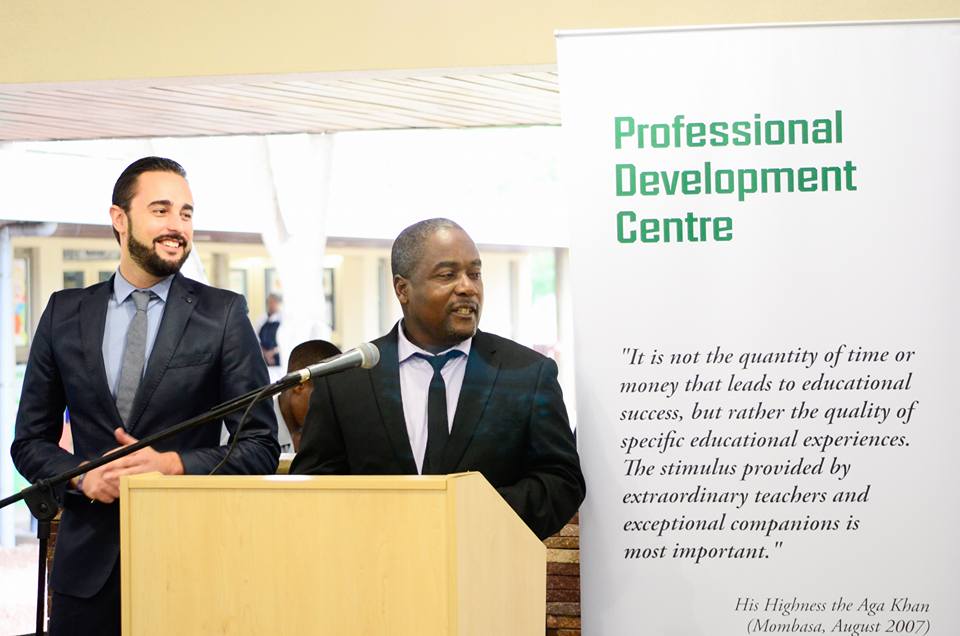
Anahita Aman (Class of 2020): building on her Academy experiences to pursue International Development
Anahita Aman, a graduate of the batch of 2020 was here at the academy for 8 years. Currently pursuing History at University College London, she hopes to build a career in International Development.
Having spent her fundamental years at the Academy, Anahita credits the Academy for shaping her into who she is today, not just as a person, but in her interests and career choices as well. Anahita lived in the residences, and she majorly misses that feeling of knowing everyone and the close-knit community here, “which is hard to find in college when you are an international student in a different country” she expressed.
Anahita is currently preparing to pursue International Development as her career and the opportunities provided in school in terms of CAS (creativity, activity, service), and the internship programme at the time which felt like requirements, actually strengthened her application. She believes that the IB is more helpful than we assume it to be, as it instigates a voice inside you that you don’t get in the other curriculums which are a lot to do with mugging up. Anahita proclaims, “Even though you are working in criteria and a certain structure, you still have the space to express your viewpoint.”
The transition from school to university was one she found difficult “School does prepare you for all the writing and reading, but college just gets way more intense, the expectations are way higher, and in school, you have all these teachers who are constantly helping you and you can go sit with them but that kind of comfort is harder to find at university because it is a much larger community with thousands of students so comparatively school is a more close-knit community but university is daunting in that sense.”
The one experience that firmly stuck with Anahita was the Model United Nations (MUN). She served as the Secretary-General for AKAHMUN 2019-20. The MUN taught her a lot in terms of management, planning, communication, leadership and even finance as you work towards an event dealing with multiple stakeholders in the Academy. Known for her calm nature, Anahita was a completely different person in the MUN. She said “That was a fun thing, I never knew that side of me existed until I was put into the position. I didn’t know if I could do it but when you are in the atmosphere and put in that position I think some part of you just takes charge. That’s a new side of me that I saw, that boosted my confidence because I realised I could lead people if I needed to and it was a great thing.”
Anahita calls the Academy a second home, practically growing up there. She believes the IB, teachers, the residences, and her friends have helped and impacted her in more ways than one and have had a significant impact on who she is today.
